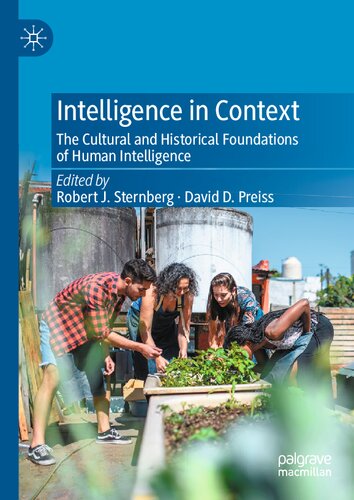

Most ebook files are in PDF format, so you can easily read them using various software such as Foxit Reader or directly on the Google Chrome browser.
Some ebook files are released by publishers in other formats such as .awz, .mobi, .epub, .fb2, etc. You may need to install specific software to read these formats on mobile/PC, such as Calibre.
Please read the tutorial at this link: https://ebookbell.com/faq
We offer FREE conversion to the popular formats you request; however, this may take some time. Therefore, right after payment, please email us, and we will try to provide the service as quickly as possible.
For some exceptional file formats or broken links (if any), please refrain from opening any disputes. Instead, email us first, and we will try to assist within a maximum of 6 hours.
EbookBell Team

4.4
32 reviewsThis book reflects on the various ways in which intelligence can manifest itself in the wide range of diverse contexts in which people live. Intelligence is often viewed as being tantamount to a score or set of scores on a decontextualized standardized intelligence test. But intelligence always acts within a sociocultural context. Indeed, early theorists defined intelligence in terms of adaptation to the environment in which one lives. The tradition of decontextualization is old, dating back to the very beginning of the 20th century with the development of the Binet-Simon Intelligence Scales. This tradition is not only old, however, but obsolete. Because people live in different sociocultural as well as physical environments, intelligence can take somewhat different forms in different places and even at different times. The chapters in this edited volume show that intelligence viewed in the abstract is a somewhat vacuous concept - it needs to be contextualized in terms of people’s physical and sociocultural surroundings.